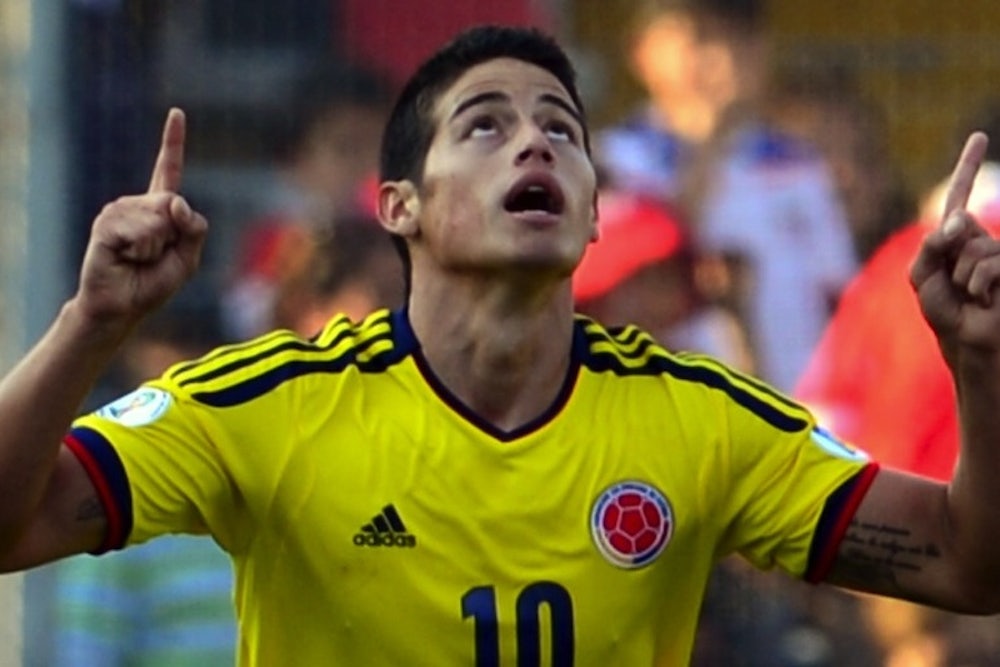I’m in Bogotá, Colombia for a month, a city that is understandably World Cup mad. It seems half the people on the streets are wearing the yellow national team jerseys, or trading Paninis in pop-up marketplaces across the city, or on the phone frantically trying to get their cable installed for the month. Colombia is back in the World Cup for the first time since 1998, with the kind of team (and, let’s be honest, the kind of group: Japan, Ivory Coast, Greece) that makes you dream big. This crop of players is a generation removed from the horror show of 1994, and as a group seem to have the character and skill to push past all of that dark history. Even without the injured Radamel Falcao, the nation’s most beloved player, the mood is optimistic: James Rodriguez, Falcao’s teammate at Monaco, is one to watch, and Éder Álvarez Balanta is among the most promising young defenders playing in South America. Even the teams Colombia have to play—none of them traditional powerhouses—represent a wonderful sort of throwback to a simpler time. There’s a team from every continent, winnable games with no clear favorites. The consensus seems to be that it’ll be fun, and that the national team has every chance to get to the Round of 16.
But there’s a lot more going on in the background, of course. Colombia’s World Cup campaign opens on Saturday against Greece, and the very next day, there are apocalyptic presidential elections. (One wonders if there’s any other kind anymore?) The incumbent, a former defense minister, hardly a dove or a radical, has nonetheless spent much of his political capital pushing peace talks with the FARC. His opponents argue this is about all he’s done in his term, but whatever the case, these peace talks have been underway in Havana for almost two years, a delicate process which could prove to be historic. The challenger, on the other hand, was literally caught on tape trying to sabotage those same peace negotiations. His defense is that the video is fake (independent experts have said otherwise), but of course, he’s quite vocally against the peace process anyway. To put it in simple terms, War and Peace are on the ballot this Sunday in Colombia, and sadly, after this week’s televised debate, it seems likely War will win. The debate was easily the nastiest I’ve ever seen. It looked for a moment as if the War candidate might actually physically assault the Peace candidate. The line of the night was, “I don’t treat you with respect because you don’t deserve respect.” To generalize, Colombians are good at coffee, literature, salsa, and polarization, not necessarily in that order.
I only bring up the presidential election on a soccer blog because of how starkly different the moods of this weekend promise to be. On Saturday, Colombia will dress up in yellow and pretend to be united behind its national team. The country will stop en masse to watch, to cheer, to support and suffer along with its players. And the following day, these same people will, in all likelihood, go to the polls and vote to continue tearing each other to pieces, as they have for five decades.
I hope I’m wrong.
